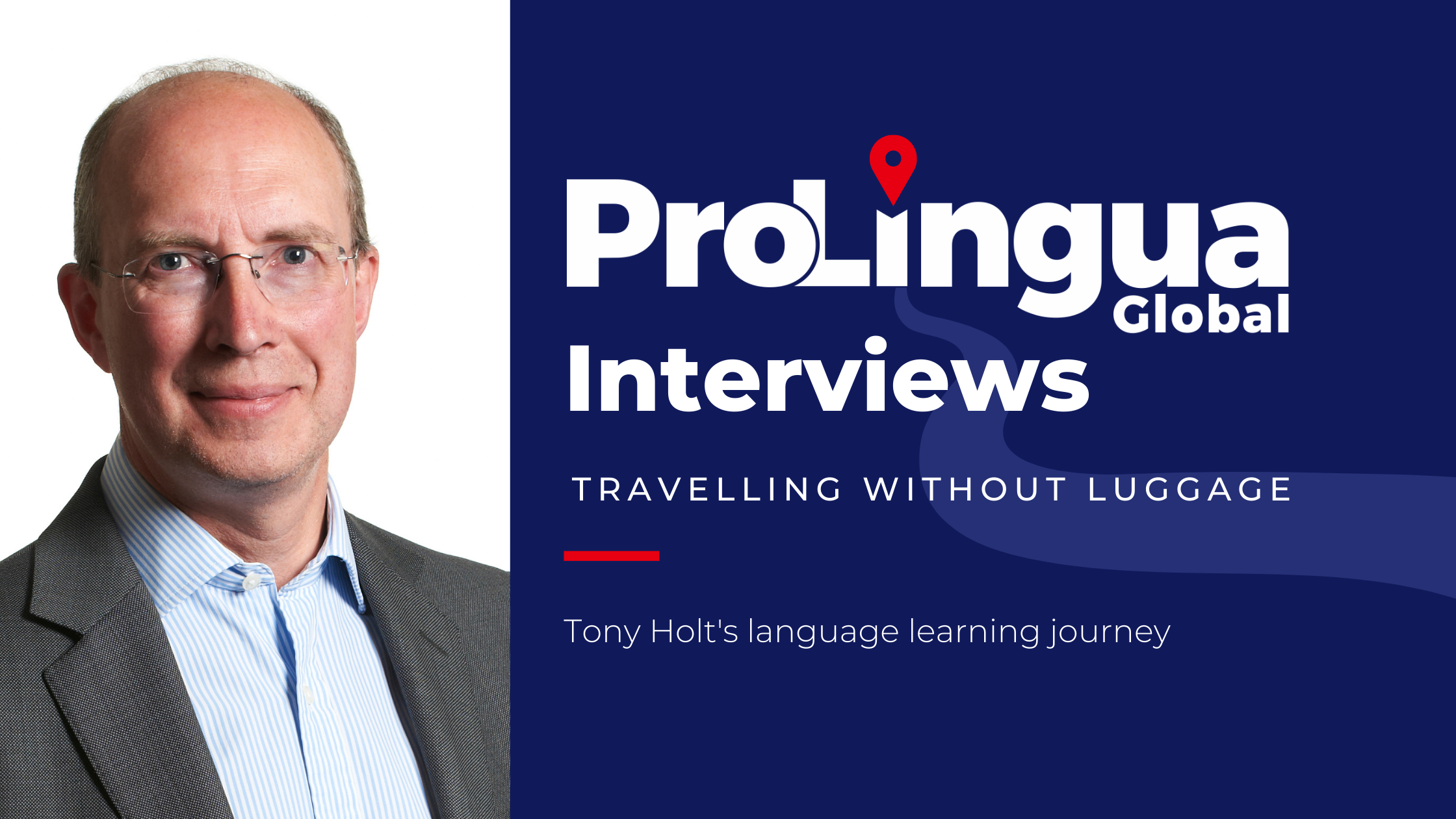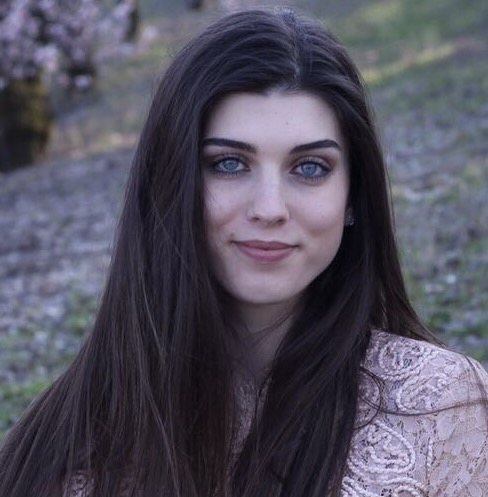ProLingua Global Interviews: Tony Holt’s language learning journey
This is ProLingua Global’s new interview series ‘Travelling without luggage’.
In these blog posts, German & Hungarian language coach Gabriella Ferenczi shares the experiences of her clients, who study languages with her. Expect inspiring stories, useful tips and advice, fun facts and a lot of motivation and encouragement.
Let’s delve into it!
The first person to answer our questions is Antony Holt. Tony is a retired finance director and chartered accountant who’s been learning German for over 8 years. First, he learnt by himself, until he realised he wanted to explore the language more in-depth. That’s when he reached out to Gabriella for guidance and support.
Now, let’s discover what Tony’s language learning journey is about.
What is your language background?
At school I started with Latin, Greek and French as languages. I did not do any German at all, although I did pick up some Italian. I went on to study French and Latin at university and became reasonably fluent in French, although the course itself was primarily geared towards French literature.
Why did you choose to learn German?
For some while, I had been thinking that my complete lack of German was a gap that I wanted to fill, and then we became friends with the family of my daughter’s German exchange partner. Naturally, they spoke very good English, and I thought I should aim to reciprocate by learning German.
Tell us about your language learning journey so far.
I started by teaching myself from grammar books, my favourite being ‘Essential German Grammar’ by Durrell, Kohl and Loftus. This looks me to a certain point, but I thought I needed a tutor to get further with the language. I started working with Gabriella about 8 years ago and she has helped me to achieve and maintain functional fluency. Also, my classes with her are always fun, so it does not seem like hard work at all.
What challenges have you faced during your learning experience?
I have retired now, but one challenge was finding enough time to learn when I was working. A longer-lasting challenge though is retention – I find I have to work a lot harder now to retain knowledge than I did when I was at university.
Why do you continue to improve your German language skills?
I enjoy learning and I am conscious that there is always more to find out and to learn. It is like filling in more and more pieces of a giant jigsaw puzzle, with the picture getting better all the time.
What are you most proud of in terms of your achievements so far?
I was really pleased when I first realised I had learnt enough to be able to read a whole book in German without too many dictionary pauses, but overall I would say that I am most proud of being able to converse in German.
Misunderstandings are part of any language journey. Can you recall a memorable example
where you were misunderstood or did not understand something?
I can’t recall anything particularly terrible, but I do remember going into a castle in Germany with my family and being asked at the ticket office how old my daughter was. I replied, “sechzig” (60), when of course I meant “sechzehn” (16), and was told that she looked young for her age!
How do you stay on track between your German coaching sessions?
As I have a coaching session most weeks, there is not a lot of time to go off the rails between sessions! Generally, I read a German book and do my assignments.
What works for you and what doesn’t when it comes to learning and memorising words and
phrases?
When I come across words I do not know, I write them down in a notebook, and then I look at the book periodically to try to memorise the words in it. I also try to associate new words with ones I already know. This is a constant work in progress though, and frustratingly I do find that words I once did know slip out of my active, and even passive, vocabulary.
Do you have a favourite German expression?
Es geht um die Wurst – it’s do or die. Only in Germany would a sausage be a matter of life or death!
As you can read, learning a language is not a piece of a cake. Like many other things, it comes with its positive and its negative aspects. The question comes naturally then: Is it worth it?
Well… it’s up to you.
Tony’s experience is a great example of how studying a language can really enrich your life. And we hope you find it as interesting and inspiring, as we did. If you would like to share your experience with us or just your thoughts about this interview, leave a comment below. We’d love to hear from you.
If you enjoyed this interview and you wish to discover more about our client’s experiences, then tune in and listen to The ProLingua Global Podcast series or check What’s the secret to being fluent? Talking to Lesley McMillan.






0 Comments